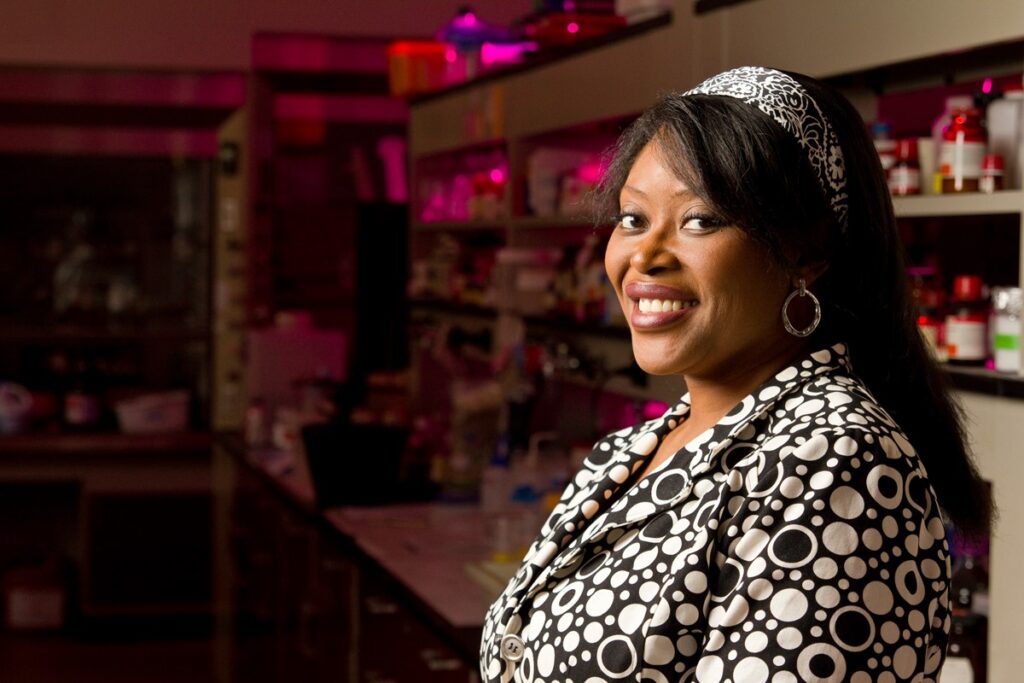 On University at Albany Week: How do we encourage all STEM students to complete their studies?
On University at Albany Week: How do we encourage all STEM students to complete their studies?
Rabi Musah, professor of chemistry at the RNA Institute, looks into a solution.
Dr. Rabi Musah is a Professor at the University at Albany in the Chemistry Department. She is also the Associate Vice Provost for the Center for Achievement, Retention and Student Success (CARSS) and the Learning Commons, as well as the Director of the Howard Hughes Medical Institute (HHMI) – Driving Change EXCEL in STEM program. This initiative aims to create an inclusive, equitable, just, caring, and reaffirming campus culture that empowers all students to excel in their chosen pursuits, and is built upon sustainable strategies that can be readily replicated and applied to increase engagement and retention of students taking STEM courses.
Research Foci in her laboratory include forensic chemistry (of psychoactive plants; wildlife forensics to address illegal trafficking of endangered species; and development of novel approaches to address concerns in forensic entomology); the environmental impact of plant volatile chemical emissions; and the development of disease diagnosis tools through analysis of non-traditional biological matrices. Her scientific research has been featured on the PBS science documentary series NOVA, and also has been highlighted in Scientific American, The New Scientist (UK), Forensic Magazine, Chemical and Engineering News, Mental Floss, Science, Ms. Magazine, numerous Times Union stories, and the Mirror Newspaper (UK), among other publications.
Combating Lack of Diversity in STEM
The fields of science, technology, engineering and math (or STEM) have a well-documented lack of diversity. Although roughly the same percentage of Black, Indigenous, Latin and other students of color initially select STEM majors at the same levels as White students, they end up graduating with a STEM bachelor’s degree at half the rate of White and Asian students. This results in an underrepresentation of people of color in all types of science-related jobs.
This outcome is not because students of color aren’t motivated. In many cases, it is because the climate presents additional obstacles that are challenging and insurmountable.
Through a $2.5 million grant from the Howard Hughes Medical Institute, UAlbany is studying how to develop more inclusive ways of teaching STEM courses to overcome bias in traditional teaching methods, and to improve retention and graduation rates for all students.
The grant will allow us to replicate and scale an existing program that has shown success for students across all demographics, with disproportionately high positive impacts for students from historically underrepresented groups. This program provides the STEM undergraduates who opt in with free, highly structured tutoring in STEM courses, as well as other supports that account for cultural context.
Through the grant, we will expand this program to include all incoming STEM majors so that everyone will receive its benefits. Students will be partnered with tutors, academic advisors and financial aid counselors, and there will be real-time monitoring of progress so that assistance can be provided at the earliest signs of academic distress.
We will also be collaborating with STEM faculty in the design, testing and implementation of pedagogical materials that are more inclusive of all learners. This will enable development of best practices that can be replicated on other campuses to advance student achievement and educational equity.
Read More:
[Albany] – UAlbany Awarded $2.5M Grant to Pioneer STEM Success Programs


Comments
One response to “Rabi Musah, University at Albany – Combating Lack of Diversity in STEM”
Here’s a thought, How about we just let people do what they want? My daughter has a PhD in chemistry which she earned through no particular incentives or cajoling from outsiders. If it turns out that the distributions of males to females are different among different fields of study, so be it. Men and women are different and, as a group, have different interests. It’s time we recognize this simple fact and learn to live with it.